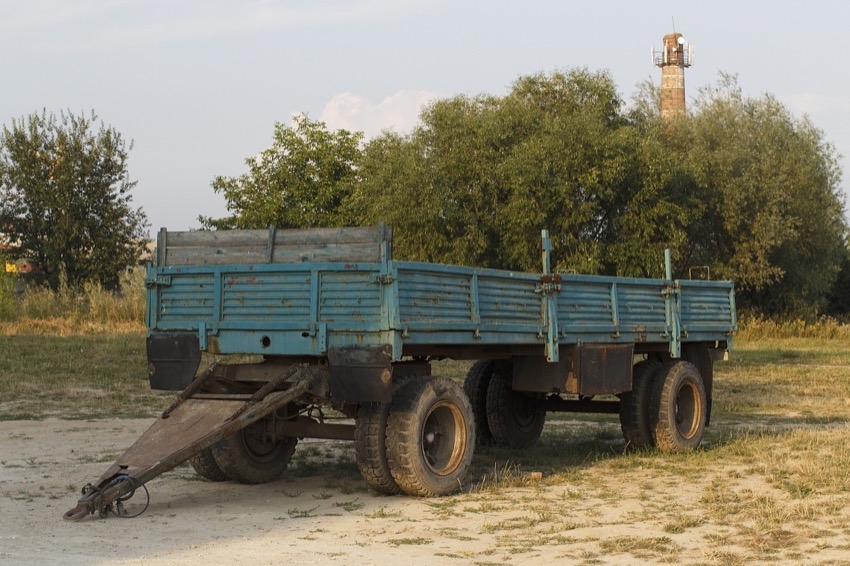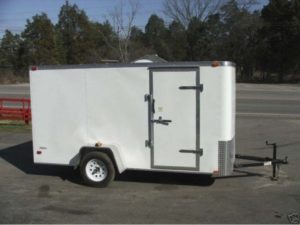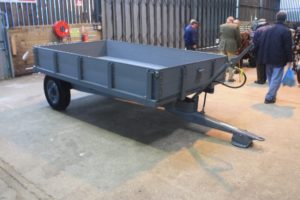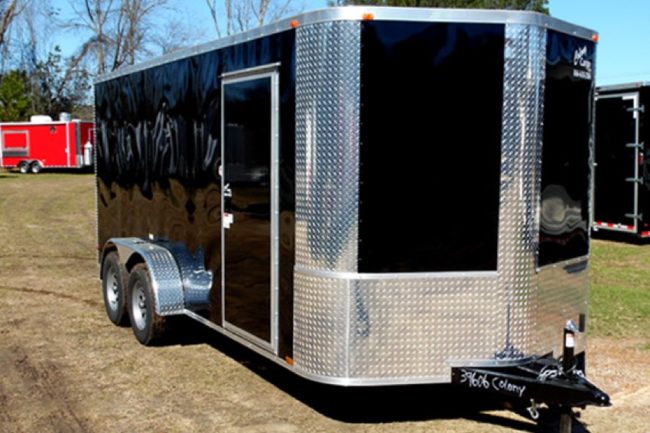Choosing the Right Utility Trailer
When it comes to hauling around your expensive lawn gear, you’re not short on options. You’ve got open trailers, closed trailers, lifting trailers, large trailers, small trailers…the list goes on. What with trailers being the things that not only haul your expensive equipment from job site to job site but also the things that keep your expensive equipment protected and secure, it stands to reason that you’ll want to do your due diligence before investing in the perfect fit for your business. So, which utility trailer works best for you?
10-Second Summary
- Lawn and landscaping companies will want to pick the best utility trailer for ensuring the safe transport of their expensive lawn tools. What qualities should you be prioritizing in your next purchase?
- Material quality: should cost outweigh the quality of the materials used in construction?
- Size: how big of trailer do you need now, and how big of a trailer do you anticipate needing over the next 3-5 years?
- Design: do you value the cost and convenience of an open trailer design over the security and protection of an enclosed trailer?
Safety Is Key
Safety ought to be one of your primary concerns when picking out a utility trailer. After all, if you’re running a landscaping or lawn care business, you’re likely hauling around thousands of pounds worth of equipment. Not only that, but you’ll want a trailer that loads and unloads safely and conveniently. What’s the best option available? There are a few considerations you’ll need to make here, predominantly having to do with a trailer’s quality, size, and design.
Quality Considerations
Like most things in life, you get what you pay for with utility trailers…which is to say that a good trailer isn’t cheap and a cheap trailer probably isn’t any good. As a business owner, we know that you’re always looking for new ways to be prudent with your money, but skimping on quality engineering and components is probably not the best way to save a buck in the long run.
Trailers can use a variety of different materials in their construction, ranging from steel and aluminum to wood and composite. The materials used will obviously affect the cost of the trailer, but long term durability should probably outweigh the initial cost in your consideration.
For instance, you’ll likely find that you can save a few hundred bucks by opting for that trailer with the wood deck over the one with the steel deck. But, when you consider that you might have to replace that wood deck a few times over the life of the trailer, perhaps it’s better to splurge and buy the trailer with the more durable materials.
Size Matters
One of the first things you’ll likely consider when purchasing a utility trailer is the size you’ll need to carry all your equipment. How much does your equipment weigh? How much space does it take up? Knowing the weight and dimensions of your equipment will give you a pretty good idea of how much trailer you’ll actually need.
But, you’ll also need to take an account of where you’re presently at with your business and where you plan to be in the next year or three. It makes no sense to buy a utility trailer that can haul only the tools you own now when you’re planning/hoping on growing over the next few years. Rather, buy a trailer you can grow into. Also, keep in mind that it’s dangerous to overload a trailer; it’s better to have more trailer than you need than not enough.
You’ll also need to plan on where and how you’ll store your trailer. Will you keep it in a garage? Will you store it outside? If so, will you be able to keep it out of the wind, rain, and sun? How much space is available for storage? These are the types of questions you’ll need to figure into your size considerations.
Generally speaking, you’ll probably want to consider a utility trailer with a low center of gravity. This will help with your load integrity, not to mention helping with cornering.
Design Time
Finally, when you’re considering your next utility trailer, you’ll need to settle on a design. Will you go with an open trailer or an enclosed one? Will you look for a model that has a ramp, or will you opt for a lift? Each design has its own pros and cons.
Open utility trailers have a lot going for them. For one thing, their openness means that reaching in and grabbing what you need from the side can be a lot more convenient than walking into a sweltering trailer. Also, because they tend to be lighter, and because they tend to cut down on wind resistance, they also tend to be less of a drag on your fuel economy. They also tend to run a good deal cheaper than your enclosed trailers.
Enclosed utility trailers, while running more expensive in more ways than just purchase price, offset their increased cost by offering a good deal more security than your open trailers. Rather than having to lock up your open trailer inside a garage somewhere, you can simply uncouple your trailer from the vehicle, lock it up, and not worry too much about theft. Enclosed trailers keep your expensive landscaping equipment from the elements as well.
Which utility trailer works best for you and your growing lawn or landscaping business? As we’ve seen, the initial cost is a legitimate factor, but size, quality, and design should all factor into your decision making as well.






